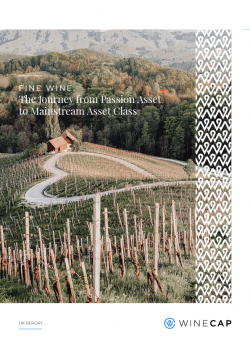Special UK Report – Fine wine: the journey from passion asset to mainstream asset class
- Our special report, entirely based on primary research, reveals wealth managers’ and financial advisers’ attitudes toward fine wine.
- Almost all (96%) UK wealth managers expect demand for fine wine to increase.
- Fine wine is ahead of watches (86%) and luxury handbags (80%) in second and third place respectively.
UK wealth managers see demand for fine wine comfortably outstripping other passion assets, such as watches, luxury handbags, and art. This is one of the findings in our special UK report, Fine Wine: The Journey from Passion Asset to Mainstream Asset Class.
Fine wine – the most in-demand passion asset
The report, based on a study conducted among 50 UK-based wealth managers and financial advisers who only deal with high-net worth clients (£100K+), revealed that fine wine will attract most demand from investors over the coming year amongst all leading passion assets. 96% expect demand to increase, of which three out of five (60%) said that it will increase “significantly”.
This placed fine wine comfortably ahead of watches (86%) and luxury handbags (80%) in second and third place respectively. Other well-established passion assets such as art (68%) and classic cars (62%) placed much lower in sixth and tenth place.
Fine wine in investment portfolios
The report found that fine wine is already featuring prominently in many wealth managers’ client portfolios. UK wealth managers and advisers estimated that over 40% of their high-net-worth (“HNW”) client base invest in fine wine with an average portfolio allocation of around 10%.
Fine wine’s growing prevalence among HNW client portfolios provides compelling evidence, if any is needed, that it has graduated to a genuine alternative asset, a highly effective portfolio diversifier, operating alongside other popular alternatives such as hedge funds, real assets, and private capital as well as mainstream assets such as fixed income and equities.
In common with other alternative assets, fine wine tends to feature more prominently in larger portfolios belonging to more sophisticated investors where there is a greater premium on diversification. Almost all respondents (98%) said that clients investing in fine wine are mainly experienced investors, with 62% saying they were “very experienced”.
Download your complimentary copy of the 2023 📄 WineCap Special UK ReportWineCap Wealth Report and discover how fine wine can enhance your investment.

WineCap Special Report 2023